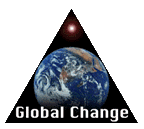 THE GLOBAL CHANGE CURRICULUM AND
UC MINOR
THE GLOBAL CHANGE CURRICULUM AND
UC MINOR
“To become better equipped to contribute to the
important debates
concerning global environmental change,
resource management
and societal adaptation strategies”
Preamble
The
three-semester, interdisciplinary course sequence “Introduction to Global
Change” (http:/www.sprl.umich.edu/GCL/)
is an eight-year-old journey into inquiry-based, undergraduate curriculum
development. The sequence has
experienced steady increase in student enrollment, continued evolution of its
intellectual content, and has attracted campus, national, and international
attention for its innovative, technology-based approach. This unique activity, originating from the
grass roots of faculty enthusiasm, reaches beyond the normal challenges of
undergraduate teaching: it includes a comprehensive formative and summative
evaluation effort, a dissemination and outreach program, and a university-wide
effort to reform undergraduate education.
We believe that early capture of student interest using
interdisciplinary study breaks new ground in structure, content, and
pedagogical methodology, and that our approach has important contributions to
make to undergraduate education, both here at Michigan and at other
institutions. Progress to date has
benefited from the support of the Provost, various Deans, the Vice President
for Research, the G Whitaker Fund and CRLT, and from external funding from the
National Science Foundation and the W&F Hewlett Foundation.
Highlights and
Accomplishments
q
Faculty Initiative and Commitment: The
course was initiated by mainly senior faculty who have been volunteers, adding
this to their regular course loads. They
attend weekly team meetings (bi-weekly in summer), and conformed to an
integrated format of course topics and presentation.
q
Enrollment Growth: Steady growth, reaching 200
(capped by room size) in Fall 1999, reflects the broad student appeal of a course
sequence that, until now, has recruited outside of the traditional
"unit" structure in the University.
q
Course Ranking: The large-enrollment GC-I
course is ranked well by students among all introductory science and math
courses at U-M.
q
Interdisciplinarity: Often called
for yet difficult to practice, the GC team has achieved near-seamless
interdisciplinarity through team coordination, continuously retooling of course
content, and mutual respect for content areas aimed at a balanced, integrated
presentation.
q
Evaluation: Working with the School of
Education we developed an independent, state-of-the-art
course/student/instructor evaluation system, called "unique" by
external consultants.
q
Extramural Funding: Two NSF-Education grants to
develop the courses and evaluation as the core of a UCDT (University Curriculum
Development Testbed) project centered at U-M.
W&F Hewlett Foundation funding for development and implementation of
“front-loaded” UC minor as general education alternative.
q
Leadership: Success and prominence of the
project has led to many invited addresses and presentations to national and
international educational institutions and meetings.
q
Science Literacy and Outreach: Our
collaborative effort to improve general science education at the undergraduate
level has led to the dissemination of this educational system to K-12, high
school teacher and peer programs.
q
Integration with U-M Environmental Programs: The
faculty team has participated in all major environmental initiatives on campus,
and a new University Minor in Global Change, approved in Fall 1999, provides a
novel, “front-loaded”, problem-focused approach to the analysis of global
environmental issues.
Curriculum
q Highly interdisciplinary,
seamlessly crossing NS and SS disciplinary boundaries.
q Provide a broad
understanding of the complex issues involving global change and global
sustainability (Earth as a dynamic system).
q Enable students to use
quantitative tools in approaching global change issues, including Stella
(dynamic modeling), ArcView (spatial analysis), spreadsheets and interactive
modules.
q Offer a “front-loaded”
minor, to engage motivated students in their first years of study
o
Introduction
to Global Change I (UC110): Physical
Processes (4cr) (NS)
o
Introduction
to Global Change II (UC111): Human
Impacts (4cr) (SS)
o
Global
Change III (UC212): Studies of Global
Sustainability (4cr)
o
Two
electives from Bio-, Geo-, Sociosphere (6-8 cr)
the Global
Change Team, 6
October 2000